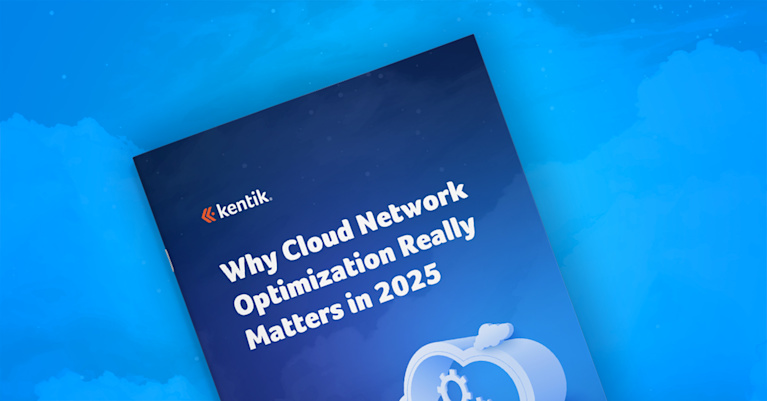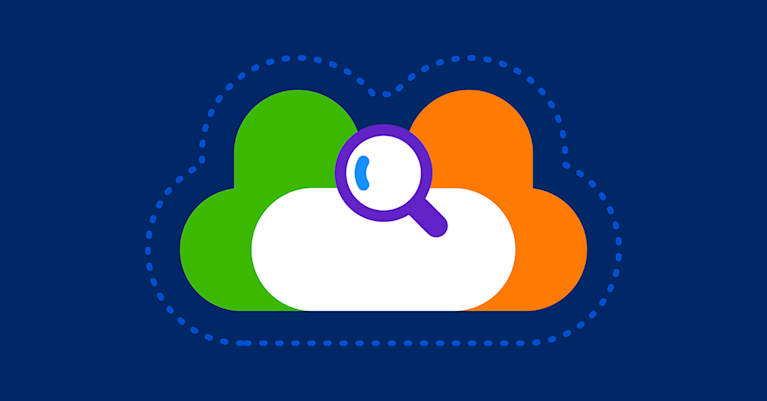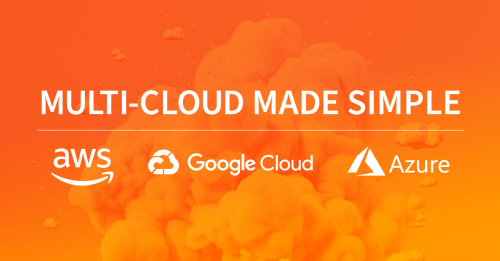Cloud Network Performance Monitoring
The rapid growth of the internet and the proliferation of cloud services that complement traditional enterprise data centers has increased the complexity of network traffic flow patterns. Enterprises are not only aggressively adopting cloud infrastructure (IaaS), development platforms (PaaS) and software (SaaS), but are creating more digital business initiatives that target end-users across the internet with digital offerings such as social media, ecommerce, and mobile applications.
What is Cloud Network Performance Monitoring?
Cloud Network Performance Monitoring, often called Cloud NPM, refers to the specific application of network performance monitoring practices to networks within cloud environments, including multicloud and hybrid cloud infrastructures. Cloud Network Performance Monitoring is vital to maintaining efficient and reliable cloud-based services.

Cloud Network Performance Monitoring entails continually measuring, diagnosing, and optimizing a network’s service quality. It provides an accurate reflection of the user experience, helping to ensure the network’s performance aligns with both service-level agreements (SLAs) and user expectations.
By tracking various performance metrics such as bandwidth, throughput, latency, and error rates, Cloud Network Performance Monitoring allows network managers to identify potential issues, optimize network efficiency, and make data-driven decisions to enhance the overall performance of cloud-based networks.
With the shift from traditional data centers to cloud infrastructures, the necessity and complexity of network performance monitoring have significantly increased. This increasing complexity has made Cloud Network Performance Monitoring an essential component of modern network management strategies.
Cloud Network Performance Monitoring Metrics
NPM requires multiple types of measurement or monitoring data on which engineers can perform diagnoses and analyses to extract insightful performance metrics. These are performed using cloud monitoring tools that track network operations. Example categories of NPM monitoring data are:
-
Bandwidth: Measures the raw versus available maximum rate that information can be transferred through various points of the network or along a network path.
-
Throughput: Measures how much information is being or has been transferred.
-
Latency: Measures network delays from the perspective of clients, servers, and applications.
-
Errors: Measures raw numbers and percentages of errors such as Bit Errors, TCP retransmissions, and out-of-order packets
Network managers are confronting a significant challenge: the mismatch of traditional NPM approaches and solutions with their hybrid cloud and increasingly distributed application realities. New approaches are required for effective cloud network monitoring. Learn more about Kentik’s cloud network monitoring solutions.
Monitoring Cloud Network Metrics with Kentik
In this short video, Phil Gervasi demonstrates how Kentik can be used to monitor cloud network performance metrics among multiple cloud instances using a lightweight synthetic test agent that can be deployed on-premises (in a datacenter or colo) as well as in public cloud instances.
In this way, key network performance metrics including loss, latency, and jitter can be monitored between on-prem resources and public cloud instances. But also, this technique can be used to monitor performance between and among public cloud services (for example, between AWS, Azure and GCP resources). Additionally, Kentik’s path view provides a hop-by-hop visualization of the internet path between vaious instance, as well as any problems along the way.
Cloud Network Monitoring KPIs
To maintain efficiency for public, private, and hybrid cloud infrastructures, your cloud monitoring service needs to keep track of a few key performance indicators. Monitoring these metrics will lead to finding opportunities that will increase network speed and efficiency while optimizing resource usage.
Here are some of the KPIs your cloud network monitoring solution should track to optimize performance:
- Mean time to repair (MTTR) or mean time between failures (time)
- Production incidents by application/team
- Number of security lapses (open ports, IAM failures, etc.)
- Security incidents per month by team
Cloud optimization is crucial to delivering software with lean infrastructure operating margins and enhanced customer experiences.

Pre-cloud Network Performance Monitoring Approaches
Legacy network performance monitoring approaches were architected based on pre-cloud assumptions, such as centralized data centers running monolithic applications. As a result, NPM solutions have traditionally utilized an appliance deployment model. An appliance-based PCAP probe with one or more interfaces connects to router or switch span ports or an intervening packet broker device (such as those offered by Gigamon or Ixia). The appliance records all packets passing across the interface into memory and then into longer-term storage. Virtual probes may be used in virtualized datacenters, but they are also dependent on network links in one form or another.
With application components increasingly distributed across cloud environments and users located across the internet as well as within an enterprise WAN, traditional NPM methods of data ingestion become unusable in many cases. For example, packet capture accomplished with physical or virtual appliances does not have a place to instrument in many public cloud environments.
In addition, the sheer scale of today’s cloudified application communications and the proliferation of network traffic flows means that appliance-based models for storing and performing analysis are becoming outmoded due to pre-cloud storage and computing constraints.
Cloud Network Monitoring Tools
A cloud-friendly and highly scalable SaaS model for network performance monitoring splits the monitoring function from the storage and analysis functions. Monitoring is accomplished by deploying lightweight monitoring software agents that export PCAP-based statistics gathered on servers and open-source proxy servers such as HAProxy and NGNIX. Cloud visibility tools also provide IT teams, network engineers, security analysts, and other stakeholders the ability to understand what is happening within cloud environments.
Cloud monitoring tools export statistics that are sent to a SaaS repository that scales horizontally to store unsummarized data and provides big data-based analytics for alerting, diagnostics, and other use cases. While host-based performance metric export doesn’t offer the full granularity of raw PCAP, it provides a highly scalable and cost-effective method for ubiquitously gathering, retaining, and analyzing key performance data, thus complementing PCAP.
Revolutionizing Cloud Network Performance Monitoring with Kentik
As enterprises continue to navigate the complexities of cloud and multicloud environments, the demand for a comprehensive and adaptable network performance monitoring solution has never been greater. Kentik recognizes these challenges and has engineered cutting-edge solutions that redefine what’s possible in Cloud Network Performance Monitoring.
Kentik’s Network Observability Platform is designed to thrive in the dynamic, distributed nature of cloud infrastructures. Offering unparalleled visibility, Kentik enables network professionals to monitor and manage network performance across all cloud environments seamlessly, from public and private clouds to hybrid and multicloud setups.
Kentik’s multi-cloud observability solution empowers teams to fully understand and optimize cloud traffic, connectivity, and performance across diverse environments, including AWS, Google Cloud, Microsoft Azure, and Oracle Cloud Infrastructure. It offers an interactive, context-rich visualization of cloud and data center infrastructures, enabling rapid identification of connectivity issues, compliance and security risks, and inter-region data exchange. Kentik enhances cloud migration strategies with real-time traffic data and synthetic testing insights, ensuring optimal customer experiences. For troubleshooting, Kentik’s Connectivity Checker provides instant, detailed insights into connectivity problems, facilitating quick resolution.
Key Features of Kentik’s Cloud Network Monitoring Solutions:
-
Scalable Architecture: Kentik’s cloud-native SaaS platform effortlessly scales to meet the demands of even the most extensive and complex networks, ensuring that your monitoring capabilities grow with your infrastructure.
-
Comprehensive Visibility: With Kentik, gain deep insights into every aspect of your cloud network’s performance. From high-level bandwidth and throughput metrics to granular details like latency and error rates, Kentik provides a clear picture of your network’s health.
-
Advanced Synthetic Testing: Beyond traditional network monitoring, Kentik’s synthetic testing capabilities allow you to proactively identify potential issues before they impact end-users, ensuring optimal performance and user experience.
-
Seamless Integration: Kentik’s platform integrates effortlessly with existing cloud services and infrastructure, providing a unified view of your network’s performance across all cloud and on-premises environments.
-
Intelligent Analytics: Leveraging big data analytics, Kentik transforms vast amounts of network data into actionable insights, enabling you to make informed decisions to enhance your network’s efficiency and reliability.
-
Advanced AI Features: Kentik AI allows NetOps professionals and non-experts alike to ask questions—and immediately get answers—about the current status or historical performance of their networks using natural language queries.
Embracing the Future with Kentik NMS
Kentik NMS, the next-generation network monitoring system, embodies the future of network intelligence and observability. Tailored for the intricacies of cloud networking, Kentik NMS offers a forward-thinking solution that addresses the entire spectrum of network monitoring needs in cloud-based environments.
With Kentik NMS, network teams can:
- Monitor cloud networks with the same ease and depth as traditional on-premises networks.
- Access real-time and historical data to identify trends, anticipate challenges, and optimize performance.
- Use advanced analytics to understand complex cloud network behaviors and drive strategic improvements.
Kentik’s commitment to innovation ensures that enterprises have the tools they need to navigate the evolving landscape of cloud networking confidently.
To explore how Kentik can transform your approach to Cloud Network Performance Monitoring, visit Kentik’s cloud monitoring solutions. Discover the power of true network intelligence and take the first step towards a more resilient, efficient, and future-proof cloud infrastructure: Request a personalized demo of Kentik’s cloud monitoring capabilities or sign up for a free trial to experience the difference firsthand.


